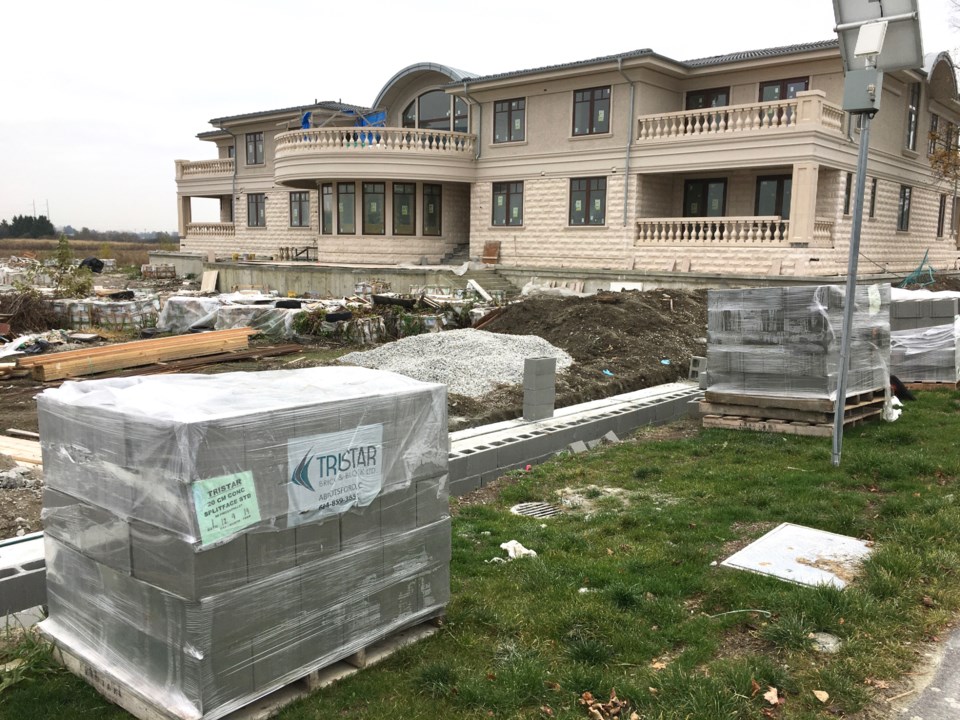A judge has ruled that the building permits for two homes in the Agricultural Land Reserve (ALR) shouldn’t have been cancelled by the City of Richmond as they were in the process of being preloaded.
In two recently released judgements, B.C. Supreme Court Justice David Crerar said the city’s decision to cancel the permits of two properties, both in the ALR, was “unreasonable,” given the definition of construction in Richmond’s building bylaw.
The two cases – launched by a Belcarra couple and a corporation in March 2019 – were both caught up in the saga of “monster houses” on the ALR, and a new bylaw limiting ALR houses to 400 square metres, which was passed by city council in December 2018. Richmond’s house size bylaw followed the province’s ban on ALR houses larger than 500 square metres in February 2019.
Both petitioners argued that the decision to cancel permits was based on external politics, rather than what was outlined in the building bylaw.
In March 2017, Minster Enterprises Ltd., whose principal is Tie Jun Li, applied for building permits for a five-acre property at 14160 Westminster Hwy. with the city. The initial permit was extended to March 2018.
However, those extended permits were cancelled in September 2018 after the city claimed that no construction had taken place during the 180 days the permits were active.
That was also the case for Fu Li Yu and Jing Yang of Belcarra, who had purchased their five-acre property at 8551 No. 5 Rd. in 2016, planning to build a single-family house nearly 13,500 square feet in size. The city first issued building permits for their property in August 2017, set to expire in February 2018.
They were told by the city’s inspection manager that their permits were cancelled in October 2018.
The city cancelled the permits because, it argued, neither property had begun construction on the houses – permits are given an expiration date if there is no construction activity – according to court documents.
But both Yu and Jang, and Minster, argued that work was being done on the site.
Given the soft, boggy soil of Richmond, laying the foundation for buildings requires a lengthy, three-step process: digging out the top layers of soil, filling the hole with a permanent, more solid structural fill, and then compressing that fill with metres-high mounds of sand, known as preloading.
That preloading process may take over a year to complete, and was still in progress at the Minster property when the city said the permits were no longer valid.
At Yu and Jang’s site, the preload had been removed and work on a concrete retaining wall begun at the time of cancellation.
The city claimed the building bylaw only applied to construction of a building or structure, not site preparation, but Crerar ruled preloading falls under the city’s own definition of “construction” in its building bylaw, for example, where it’s described by the verbs install, alter, move, excavate and shore. Therefore, he ruled the permits remain valid and in effect.
“The extensive work conducted on the property, specifically the soil densification process necessary for the erection of the building on the specific area where that process was carried out, constituted ‘construction’ under the very wide definition in the building bylaw,” reads the Yu and Jang decision.
Similar reasoning is given in the Minster decision.
In order to receive the permits, both petitioners had to submit a geotechnical report, which outlined steps for foundational work.
In both cases, Crerar ruled that the petitioners are entitled to their costs “on the ordinary scale.”



